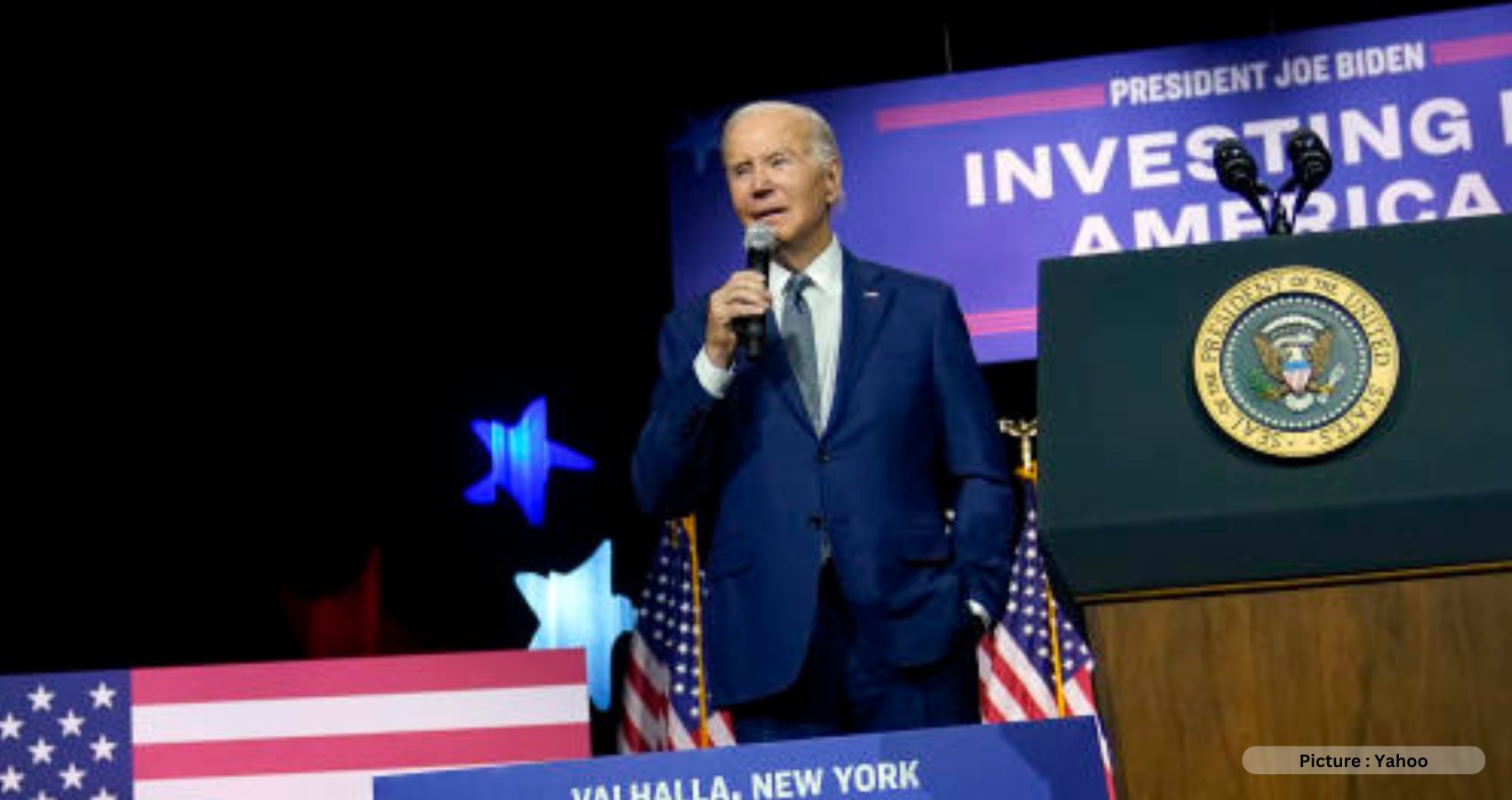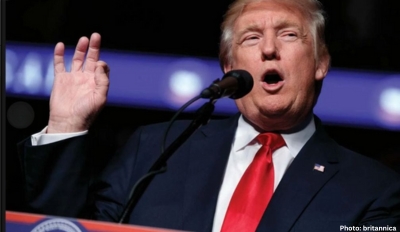The extraordinary measure of President Biden invoking the 14th Amendment to prevent a national default could potentially result in legal ambiguity surrounding the already delicate financial system. Markets are worried about a possible default, which might occur as early as June 1 if Biden and legislators fail to reach an agreement. However, if the president were to take unilateral action, the financial system could suffer, with the risk of a default being entangled in legal disputes.
On Tuesday, President Biden acknowledged that discussions have taken place regarding the possibility of invoking the 14th Amendment to avoid a default, but added, “I don’t think that solves our problem now. I think that only solves your problem if, once the court has ruled that it does apply for future endeavors.” If he were to act on his own, Biden might face lawsuits from Treasury bondholders waiting for debt payments from the US. Additionally, Republican lawmakers could sue the president, claiming that he violated Congress’s authority over federal spending and taxation by disregarding the debt limit.
Legal questions loom over strategy
The legal debate centers on a clause stating that the US sovereign debt “shall not be questioned.” This amendment was adopted after the Civil War, and the relevant section pertains to suppressing future insurrections. Nevertheless, some legal experts believe it also grants the president authority to instruct the Treasury to continue borrowing money and disregard the debt limit.
David Super, a constitutional law expert at Georgetown University, said that if the president deems the debt limit unconstitutional, he can invoke the 14th Amendment. However, he cautioned about the severe consequences of such an unprecedented move. “Given how polarized the country is and how determined the Republicans are to use the debt limit for extortion, they surely would arrange for somebody to sue,” Super mentioned.
He added that if someone with standing to sue were found, “the courts could determine whether the president’s determination is correct and could conceivably order him to cease making payments.” However, this would be a monumental decision and likely wouldn’t happen quickly.
Jonathan Turley, a legal scholar at George Washington University, warned that “any litigation would come with potentially high political and legal costs.” He explained that “the House has the constitutional control of the purse and is using that authority to seek budget cuts in future expenditures, including some not previously approved by Congress.”
Senior White House officials reportedly consider the notion of Biden acting unilaterally as a last-resort emergency measure. Treasury Secretary Janet Yellen cautioned that invoking the 14th Amendment to avoid a default could spark a “constitutional crisis.”
This situation places the Biden administration in a legal predicament. The debt limit seems to conflict with both the 14th Amendment and laws requiring the federal government to make specific expenditures, such as Social Security payments. Although other ideas, like minting a trillion-dollar coin, have been suggested, Biden has publicly dismissed them.
Financial fallout
The Biden administration is considering all potential options to avert a disastrous default, which could undermine global confidence in US debt, increase borrowing costs for Americans, and cause millions of job losses, as per Moody’s Analytics analysis. The US Treasury market serves as the foundation of the financial system since all assets are compared to historically risk-free Treasury bonds.
However, experts warn that utilizing the 14th Amendment—where the Treasury Department continues to issue debt beyond the statutory limit—poses its own risks to financial stability. During an extended period of legal uncertainty, buyers might perceive newly-issued Treasury bonds as riskier or illegitimate, potentially causing interest rates to skyrocket. Long-term political instability could also drive investors away from the US market, experts noted.
If a court issued an injunction preventing the federal government from issuing new debt or invalidating bonds issued after the limit was breached, the nation could fall into default anyway. “One of the great virtues of US government debt is that there’s no credit risk. If that debt is invalidated, suddenly you’ve introduced it,” said Brian Knight, senior research fellow at the Mercatus Center at George Mason University.
On the other hand, some experts believe that if the Treasury Department were allowed to issue debts beyond the limit, it would find plenty of buyers interested in securing higher interest rates until the crisis is resolved. “The debt that would be issued to bridge this period would end up being very, very short-term debt,” said Daniel Alpert, managing partner of Westwood Capital. “First, you’ll see a spike in rates, but when people actually start getting paid, that will calm down.”
The financial system is still recovering from three of the four largest bank collapses in US history. Banks are holding massive unrealized losses on Treasury bonds that lost value when the Federal Reserve aggressively increased interest rates. Opponents of the debt limit view the 14th Amendment as a long-term solution to credit risk that arises every time the GOP threatens to block an increase. Prominent bankers, including JPMorgan Chase CEO Jamie Dimon, have called on Congress to abolish the debt ceiling.
The constitutionality of the debt limit has not been challenged in court until recently. On Monday, the National Association of Government Employees sued to end the debt limit, stating that the statute grants the president “unchecked discretion to cancel or curtail the operations of government approved by Congress without the approval of Congress.” The union, representing 75,000 federal government workers, cited the 14th Amendment in its complaint. “This litigation is both an effort to protect our members from illegal furloughs and to correct an unconstitutional statute that frequently creates uncertainty and anxiety for millions of Americans,” said David Holway, the union’s president, in a statement. The lawsuit targets Biden and Yellen. If a court ruled in the union’s favor, the Biden administration could simply choose not to appeal, according to legal experts.











